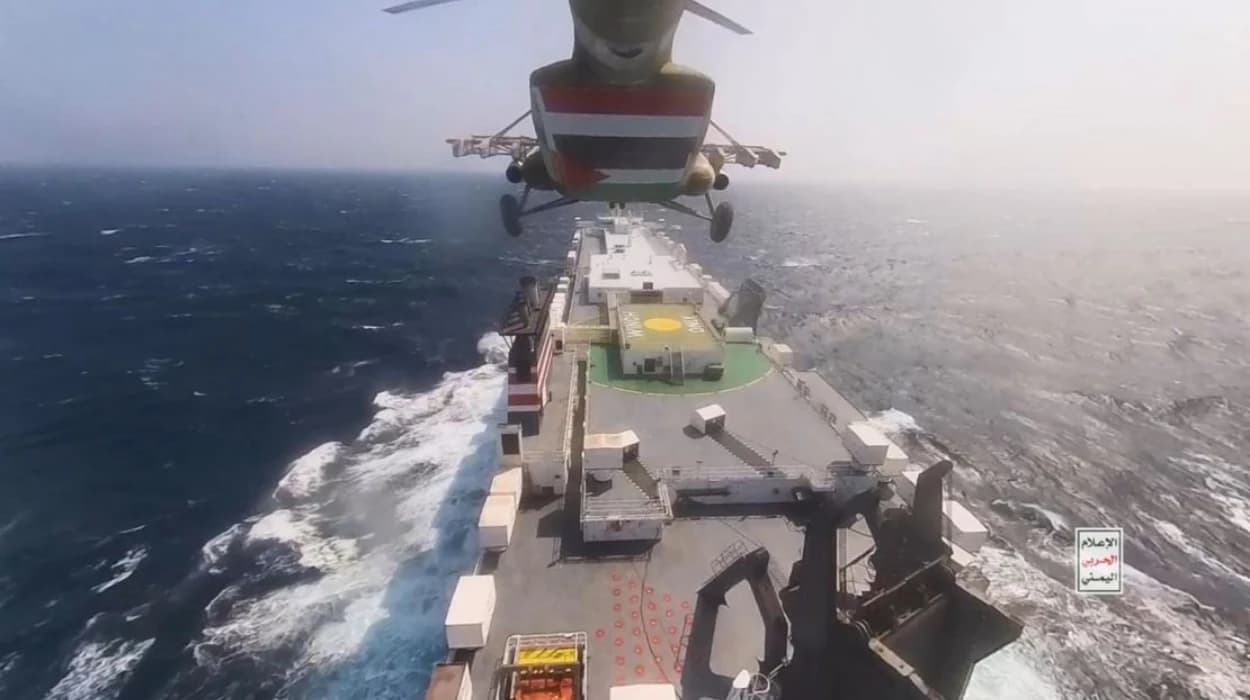Executive Summary:
Yemen’s Houthi rebels have launched missile attacks targeting an Israeli airport amid ongoing efforts to locate the crew of a missing Red Sea ship. This escalation highlights the widening regional tensions and the complex security dynamics in the Red Sea corridor.
What happened at the Israel airport?
As reported by multiple media sources, Yemen’s Houthi movement fired missiles at an airport in Israel. This attack marks a significant escalation in the conflict dynamics involving the Houthis, who have previously targeted Saudi and UAE interests but are now extending their reach towards Israel. The missile strike was reportedly part of the Houthis’ broader campaign against what they perceive as hostile forces in the region.
Who are the Houthis and why are they involved?
The Houthis are a Yemeni armed group officially known as Ansar Allah. They have been engaged in a prolonged conflict against the Yemeni government and its allies, including a Saudi-led coalition. Their recent targeting of Israel is linked to regional alliances and rivalries, particularly Iran’s support for the Houthis and the ongoing Israeli-Palestinian conflict. This attack signals the Houthis’ intent to project power beyond Yemen’s borders and challenge Israeli security directly.
Red Sea ship incident
Parallel to the missile attack, there is an ongoing search operation for the crew of a ship that went missing in the Red Sea. The ship’s disappearance has raised concerns about maritime security in this strategic waterway, which is crucial for global trade and energy shipments. The Houthis’ attack amid this search adds complexity to the security environment, potentially affecting rescue and investigation efforts.
Importance of Red Sea region strategically
The Red Sea is a vital maritime corridor connecting the Mediterranean Sea via the Suez Canal to the Indian Ocean. It is a critical passage for international shipping, including oil and gas supplies. Instability in this region threatens global trade routes and raises the risk of wider conflict spillover. The Houthis’ activities in this area underscore their strategic use of maritime and missile capabilities to influence regional geopolitics.
Israel and its allies response
Israeli authorities have condemned the missile attack and are reportedly enhancing their defensive measures to prevent further strikes. The incident has drawn international attention, with calls for restraint and dialogue to avoid escalation. Regional allies of Israel, including the United States and Gulf states, are closely monitoring the situation, emphasising the need for maritime security and counterterrorism cooperation.
Broader implications of this conflict
The Houthis’ missile strike on Israel and the concurrent Red Sea ship incident reflect the interconnected nature of Middle Eastern conflicts. They highlight the risk of proxy confrontations involving Iran-backed groups and Israel, potentially drawing in other regional and global powers. The situation underscores the fragile security balance in the Red Sea and the urgent need for diplomatic efforts to prevent further destabilisation.
